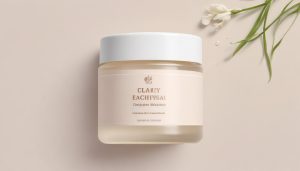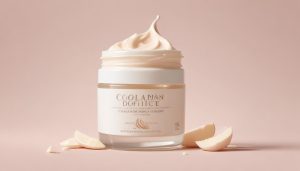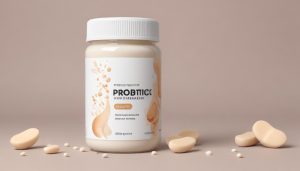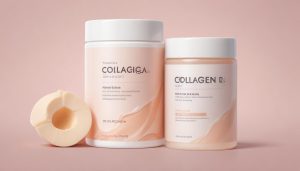What Happens When You Sleep With Makeup On
Natalie Brooks August 23, 2025
Curious about whether sleeping with makeup affects your skin health? This guide explores the wellness and beauty impacts of leaving cosmetics on overnight. Discover the science, common myths, and expert-backed tips to keep your complexion at its best.
Understanding the Impact of Sleeping With Makeup
For many, removing makeup before bed can feel like an optional step at the end of a long day. Yet, consistently sleeping with makeup on can have a significant effect on skin health. Dermatologists often note that products like foundation, mascara, and setting sprays are formulated to last, creating a barrier that may trap pollutants, sebum, and dead skin cells. Over time, this habit can compromise the natural regeneration process that happens each night.
During sleep, the body’s repair functions go into overdrive, with skin working hard to shed old cells and produce new ones. Makeup, especially waterproof or long-wear formulas, can interfere with these cycles by preventing pores from releasing built-up debris. This may result in clogged pores, inflammation, and breakouts. A 2021 study published by the American Academy of Dermatology suggests that maintaining a nightly cleansing routine supports clearer skin and reduces risk of irritation (Source: https://www.aad.org/public/everyday-care/skin-care-basics/care/skin-care-for-your-20s-and-30s).
Cosmetic brands invest in making products smudge-resistant, but these same properties make it challenging for skin to breathe overnight. Factors such as sweat, friction from pillowcases, and accumulated bacteria on unwashed skin can contribute to both dullness and a rise in blocked follicles. Over months, repeated exposure can heighten the likelihood of longer-term skin concerns, highlighting why ‘beauty sleep’ is more than just a catchy phrase.
Blocked Pores and Breakouts: The Connection
Blocked pores are among the top complaints for those who skip cleansing before bed. Sebum, the oil produced by sebaceous glands, is naturally meant to exit through pores, keeping skin supple. However, when makeup and environmental residue combine, they form a paste-like buildup. This, in turn, encourages blackheads, blemishes, and even cystic acne. Research shows that people who regularly sleep with heavy makeup on are more likely to experience inflammatory skin conditions (Source: https://www.ncbi.nlm.nih.gov/pmc/articles/PMC5843351/).
Exfoliation, whether chemical or physical, is a recommended way to remove debris stuck deep within pores. But even with frequent exfoliation, the cumulative effect of not washing off makeup creates a continual cycle of congestion. If severe enough, repeated inflammation can damage the skin’s protective moisture barrier. Over time, this can contribute to redness, increased sensitivity, and a greater susceptibility to environmental stressors.
Consulting with a board-certified dermatologist can provide tailored skincare advice for preventing makeup-induced congestion. They may recommend double cleansing, micellar water, or a gentle foaming wash designed for sensitive skin. The key takeaway is simple: daily removal of cosmetics gives skin the best chance to recover and renew. It also increases the effectiveness of overnight serums and treatments, allowing them to penetrate more deeply into the skin’s layers.
Premature Aging and Changes in Skin Texture
Many people are unaware that one side-effect of wearing makeup overnight may involve changes to skin’s texture and appearance. Studies have found that fine lines, enlarged pores, and rough patches develop more quickly when impurities are left on the skin for extended periods. Oxidative stress, triggered by pollutants trapped under makeup, further accelerates visible aging (Source: https://www.ncbi.nlm.nih.gov/pmc/articles/PMC6017965/).
Collagen and elastin, the proteins responsible for youthful tone and elasticity, are especially vulnerable to nightly exposure to free radicals. In fact, sleeping with mascara or liner can also affect the delicate skin around the eyes, leading to dark circles, puffiness, and a rough surface. Experts recommend looking for skincare products with antioxidants and peptides as part of a nighttime routine to counteract these effects.
Prevention is key when it comes to premature signs of skin aging. Removing all layers of makeup before bed, hydrating with a quality moisturizer, and applying an overnight treatment can all help preserve a smooth texture. A consistent approach not only refreshes skin instantly but also provides cumulative benefits, preserving radiance and resilience for years to come.
Eye Health and the Dangers of Residual Makeup
Eye makeup, such as mascara, eyeliner, and shadow, often stays in place thanks to strong adhesives and pigments. However, leaving these products on while sleeping poses unique risks. Particles can travel into the eyes, causing irritation, redness, or even minor infections. In some instances, regular lapses in eye hygiene have led to styes or conjunctivitis, especially in those with sensitive eyes (Source: https://www.aao.org/eye-health/tips-prevention/do-sleeping-in-makeup-affect-eyes).
Contact lens wearers should be particularly diligent about removing all traces of product before bed. Tiny fibers or pigment particles can get trapped underneath contact lenses, which increases friction and the chance of corneal abrasion. Using an oil-based remover on a cotton pad ensures thorough cleansing without harsh rubbing that could damage eyelids or lashes.
Dermatologists often recommend single-use makeup wipes for people with hectic schedules, but followed by a gentle cleanser to remove residue entirely. Taking these extra steps safeguards both vision and the delicate tissue surrounding the eyes. It also reduces puffiness and the risk of redness, helping eyes look healthier each morning.
Supporting Skin Barrier Function with Nightly Cleansing
Nightly cleansing routines support the skin’s ability to repair and protect itself. The outermost skin layer, known as the stratum corneum, acts as a barrier against pollutants and bacteria. Sleeping with makeup interferes with this barrier, raising the likelihood of trans-epidermal water loss and microscopic tears in the skin (Source: https://www.ncbi.nlm.nih.gov/pmc/articles/PMC5843351/).
After a thorough cleansing, applying a hydrating serum that contains hyaluronic acid, niacinamide, or ceramides can help reinforce the skin’s defenses. These ingredients lock in moisture, reduce inflammation, and help restore a smooth texture. Following up with a lightweight moisturizer creates an occlusive layer, supporting the natural overnight repair process.
For individuals with particularly sensitive or acne-prone complexions, patch-testing new products is important. Dermatologists stress that while consistency matters, gentle products with balanced pH values are less likely to cause disruption. The process doesn’t have to be complicated—simple routines can yield some of the biggest rewards for skin health, especially in the long term.
Debunking Common Myths About Overnight Makeup
There are several myths surrounding the impact of sleeping in makeup. Some believe that skin adapts to heavy products or that using specialized primers mitigates any damage. In reality, the skin’s physiological repair mechanisms function best in the absence of barriers, regardless of primer or foundation quality. Even mineral-based products need to be removed to allow for proper rejuvenation (Source: https://www.health.harvard.edu/blog/the-dangers-of-sleeping-in-your-makeup-2018022613313).
Water-only cleansing, another frequently repeated internet tip, often fails to break down silicone or oil-based formulations used in many modern cosmetics. Proper removal requires surfactants or oil cleansers to lift makeup from both the surface and within pores. Understanding this distinction can make daily routines much more effective.
The ritual of nightly cleansing is less about luxury and more about maintaining the health and vibrance of skin. Skipping it does not make skin stronger, nor does it ‘save time’ in the long run. Instead, investing just a few extra minutes can make a visible and scientific difference for both overall wellness and appearance.
References
1. American Academy of Dermatology. (2021). Skin care for your 20s and 30s. Retrieved from https://www.aad.org/public/everyday-care/skin-care-basics/care/skin-care-for-your-20s-and-30s
2. Juge, R., Bourgeois, P., & Gaillard-Clérembaux, V. (2018). Cosmetic products and skin physiology. National Center for Biotechnology Information. Retrieved from https://www.ncbi.nlm.nih.gov/pmc/articles/PMC5843351/
3. Bastien, P., & Lacour, J.P. (2018). Impact of environmental factors on skin aging. National Center for Biotechnology Information. Retrieved from https://www.ncbi.nlm.nih.gov/pmc/articles/PMC6017965/
4. American Academy of Ophthalmology. (2022). Can sleeping in makeup affect your eyes? Retrieved from https://www.aao.org/eye-health/tips-prevention/do-sleeping-in-makeup-affect-eyes
5. Harvard Health Publishing. (2018). The dangers of sleeping in your makeup. Retrieved from https://www.health.harvard.edu/blog/the-dangers-of-sleeping-in-your-makeup-2018022613313
6. Cleveland Clinic. (2023). Sleeping with makeup: Why it’s a bad idea. Retrieved from https://health.clevelandclinic.org/sleeping-in-makeup/







